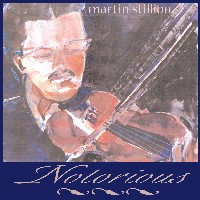So long, Johnny Frigo
But what I should have done was find out whether Johnny Frigo had a gig that night, and take whatever combination of El train, bus, taxi, and rickshaw would get me there.
Johnny Frigo spent most of his musical career as a bassist, playing upright with Chico Marx and both Dorsey brothers in the 1940s. He wrote some songs you might have heard. Later, in the 1970s, he even made a couple of progressive jazz records as a bandleader, on electric bass. He continued as a Chicago session cat until he quit in his early 70s, frustrated with the way the job had changed. Sure, Johnny could do all the popping, slapping, and other funk techniques that had come to be expected of studio bassists. He just didn't care for them.
Johnny also had a secret: inside the studio bass player was a jazz violinist longing to get out. He'd played violin in high school before switching to tuba and then bass, and had made one solo violin record, I Love John Frigo — He Swings! in 1957. When he started thinking about putting down his bass, Johnny picked his violin back up. He took a strolling-violinist gig at a Hilton Hotel to get his chops back. That led to a sit-in gig with Herb Ellis, which led to 1988's Live from Studio A in New York City, an instant critical success. Johnny had made the switch. Here was a septuagenarian no one had heard of, with a talent comparable to Stephane Grappelli or Joe Venuti. Faultless tone and technique, elegant phrasing, fantastic improvisations ... on an instrument he'd more or less kept in the closet his whole career. It was nothing short of amazing.
Johnny spent the last 20 years of his life in his second career, doing what he loved. He did some touring, but most of his gigs were in Chicago, especially in the later years as he became more frail.
In mid-June 2007, Johnny slipped on the floor in the lobby of his condo, and broke his hip. He was hospitalized. Two weeks later, on the Fourth of July — a year after I'd found myself stuck in Chicago for a night — he died. He was 90. I never got to see him, and when I might've had a chance, I didn't try.
Remind me to get out my Real Book and play through some swing tunes in honor of Johnny. I owe him at least that much.

